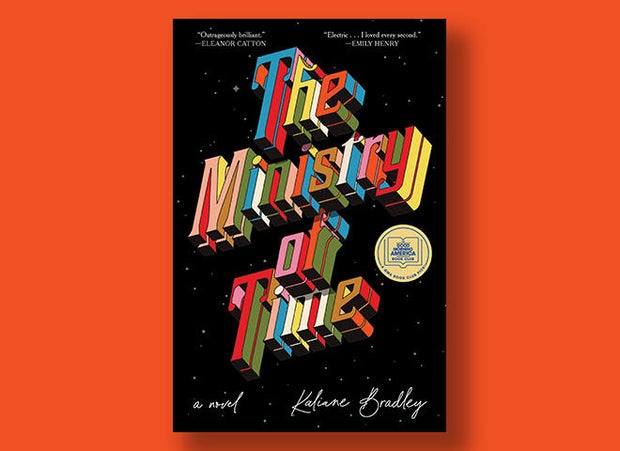Simon & Schuster
We may receive an affiliate commission from anything you buy from this article.
A delightful mix of historical fact and science fiction, Kaliane Bradley’s debut novel “The Ministry of Time” (Simon & Schuster) mixes historical fact and science fiction in the story of a secret British agency that plucks doomed people from the past.
Read an excerpt below.
“The Ministry of Time” by Kaliane Bradley
Prefer to listen? Audible has a 30-day free trial available right now.
The interviewer said my name, which made my thoughts clip. I don’t say my name, not even in my head. She’d said it correctly, which people generally don’t.
“I’m Adela,” she said. She had an eye patch and blond hair the same color and texture as hay.
“I’m the Vice Secretary.”
“Of …?”
“Have a seat.”
This was my sixth round of interviews. The job I was interviewing for was an internal posting. It had been marked SECURITY CLEARANCE REQUIRED because it was gauche to use the TOP SECRET stamps on paperwork with salary bands. I’d never been cleared to this security level, hence why no one would tell me what the job was. As it paid almost triple my current salary, I was happy to taste ignorance. I’d had to produce squeaky-clean grades in first aid, Safeguarding Vulnerable People, and the Home Office’s Life in the UK test to get this far. I knew that I would be working closely with refugees of high-interest status and particular needs, but I didn’t know from whence they were fleeing. I’d assumed politically important defectors from Russia or China.
Adela, Vice Secretary of God knows what, tucked a blond strand behind her ear with an audible crunch.
“Your mother was a refugee, wasn’t she?” she said, which is a demented way to begin a job interview.
“Yes, ma’am.” “Cambodia,” she said. “Yes, ma’am.”
I’d been asked this question a couple of times over the course of the interview process. Usually, people asked it with an upward lilt, expecting me to correct them, because no one’s from Cambodia. You don’t look Cambodian, one early clown had said to me, then glowed like a pilot light because the interview was being recorded for staff monitoring and training purposes. He’d get a warning for that one. People say this to me a lot, and what they mean is: you look like one of the late-entering forms of white—Spanish maybe—and also like you’re not dragging a genocide around, which is good because that sort of thing makes people uncomfortable.
There was no genocide-adjacent follow-up: Any family still there [understanding moue]? Do you ever visit [sympathetic smile]? Beautiful country [darkening with tears]; when I visited [visible on lower lid] they were so friendly. …
Adela just nodded. I wondered if she’d go for the rare fourth option and pronounce the country dirty.
“She would never refer to herself as a refugee, or even a former refugee,” I added. “It’s been quite weird to hear people say that.”
“The people you will be working with are also unlikely to use the term. We prefer ‘expat.’ In answer to your question, I’m the Vice Secretary of Expatriation.”
“And they are expats from …?”
“History.”
“Sorry?”
Adela shrugged. “We have time-travel,” she said, like someone describing the coffee machine. “Welcome to the Ministry.”
From “The Ministry of Time” by Kaliane Bradley. Copyright © 2024 by Kaliane Bradley. Excerpted with permission by Simon & Schuster, a division of Simon & Schuster, Inc.
Get the book here:
“The Ministry of Time” by Kaliane Bradley
Buy locally from Bookshop.org
For more info:















































